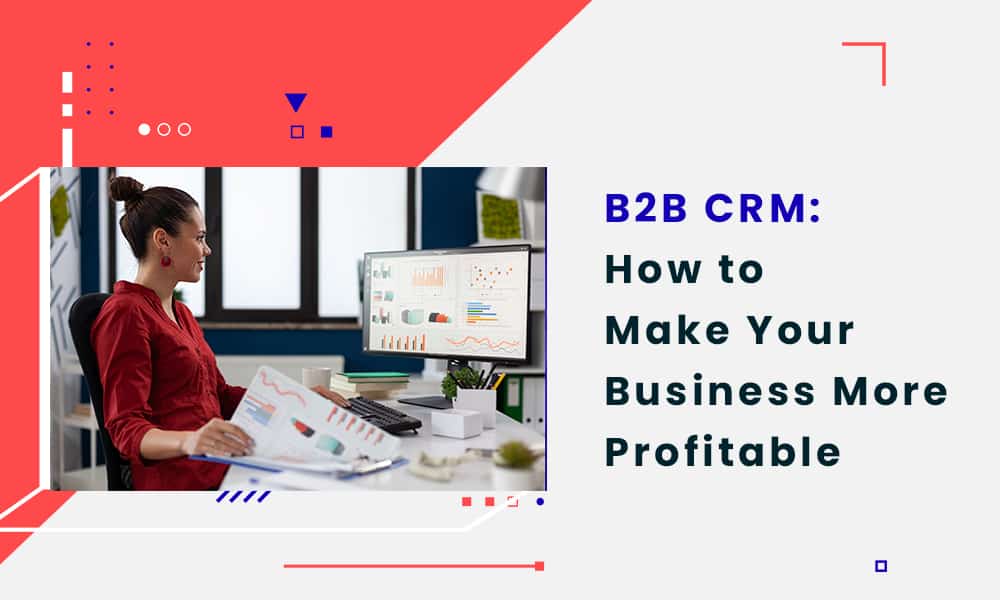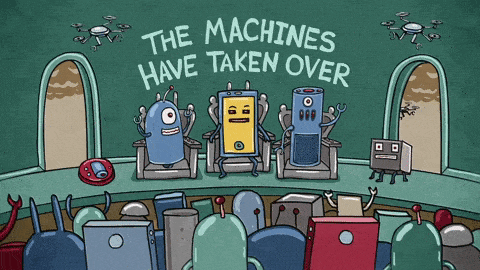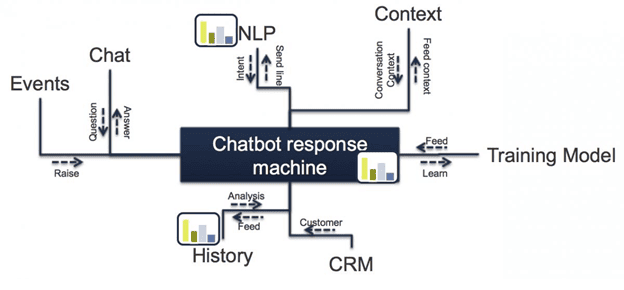If you’re a business owner, chances are you’ve been hearing more and more about CRM. But what is it? And why should your business care?
A CRM system, which stands for customer relationship management software, is a powerful tool that has revolutionized how businesses interact with their customers. In today’s fast-paced and highly competitive market, building and maintaining strong relationships with customers is crucial for long-term success.
A CRM system acts as a centralized hub where businesses can store, organize, and leverage valuable customer data to enhance their sales and marketing strategies.
At its core, a CRM system enables businesses to categorize their customers into various groups based on specific criteria. This segmentation can be done according to the type of contact, such as email or phone call, or based on the level of interest displayed by the customer in the products or services being offered.
By effectively organizing customers into groups like “hot,” “warm,” or “cold,” businesses gain a deeper understanding of their customer base and can tailor their interactions accordingly.
Imagine a scenario where a new lead comes in through social media or another source. With a CRM system in place, this lead can be promptly assigned to the appropriate group based on predefined criteria.
This ensures that the lead receives the most relevant and personalized follow-up contact, based on what has proven to be successful with similar leads in the past.
By leveraging past data and insights, businesses can provide tailored recommendations, valuable information, or targeted offers to potential customers, significantly increasing the chances of converting them into loyal buyers.
The true power of a B2B CRM system lies in its ability to optimize the customer journey or the sales pipeline. By capturing and analyzing data related to customer interactions, preferences, and purchase history, businesses can gain deep insights into individual customer needs and behaviors.
This enables them to deliver exceptional customer experiences, anticipate their requirements, and proactively address any concerns. By understanding their customers better, businesses can build trust, foster loyalty, and drive repeat sales.
In addition to boosting sales, a CRM system also streamlines internal processes, saving businesses valuable time and resources. With automated workflows, businesses can automate routine tasks, such as data entry, lead assignment, and follow-up reminders.
This automation not only increases operational efficiency but also ensures that no potential leads slip through the cracks. Furthermore, a CRM system facilitates seamless collaboration among teams by centralizing customer information, making it easily accessible to everyone involved in the customer lifecycle, from marketing and sales to customer support.
In today’s hyper-competitive business landscape, where customers have more choices than ever, a B2B CRM system is no longer a luxury but a necessity to nurture and improve customer relationships.
By harnessing the power of business customer relationship management software, businesses can unlock a wealth of opportunities to deepen customer relationships, navigate the sales pipeline effectively, boost sales, and drive sustainable growth.
So, if you want to stay ahead of the competition and provide exceptional experiences to your customers, it’s time to embrace CRM and unleash its transformative potential for your business.
According to SuperOffice, “CRM software is now the biggest software market in the world.” They go on to say that once 2025 rolls in, CRM software should bring in revenues of $80+ billion for CRM users.
This applies to both CRM for B2C and CRM for B2B companies.
In this blog post, we will explain all the ways CRM can help your B2B organization make more revenue and become more profitable than ever.
Table of Contents
What Is CRM (Customer Relationship Management)?
Let’s make clear what B2B CRM software is with a definition. As we touched on in the intro, CRM is short for customer relationship management.
This software is a tool for maximizing your customer interactions and building better customer relationships. You can rely on B2B CRM software for lead conversion and customer retention alike.
Here are some features of comprehensive B2B CRM software:
- Email marketing
- Sales force automation
- Marketing automation
- Workflow automation
- Lead nurturing
- Sales enablement
- B2B sales reporting
- Analytics
- Landing pages & website optimization
You’ll also find features related to contacts, video and social media marketing, and customer support automation that will help streamline your entire business.
If you’re exploring your B2B CRM options, EngageBay is a comprehensive solution to consider. You never have to pay to use EngageBay’s CRM, making it ideal for small businesses on a budget.
Here’s a video if you want a quick intro.
What Does CRM Do for B2B Marketing?
When marketing automation and CRM software first started emerging, they were different solutions and targeted different business areas. Today, there are B2B CRM solutions that can take care of a lot more than just customer support.
Here’s how.
Sales and Marketing Teams Sync
The responsibilities of your sales team and marketers often overlap.
To prevent too many members of your team from trying to sell to the same lead, you can sync the tasks of your B2B marketers and sales reps using a new-age CRM for B2B companies like yours.
When both teams work in tandem, your company will get more done. Customer queries can be addressed quickly, targeted emails can be sent automatically, and all customer communications can be logged in one centralized and integrated platform.
This means less confusion and more sales!
Automation Saves Time
If you’re a B2B business owner, you might have felt the need for more than 24 hours in a day! Well, that’s where automation tools with integrated CRM like EngageBay can make your life easier.
The great thing about marketing automation is that you’re able to focus your valuable time on the people who are most likely to buy.
For example, when someone fills out a form on your website and gives permission to be contacted in the future, market automation allows you to:
- Add them to a group of customers or leads with similar interests or behaviors.
- Follow up with them at the time of day when they’re most likely to respond. This can be automated too!
- Send email messages that offer a helpful tip based on their requests for information, product use, etc. Include a link to a related article or another resource that might help your leads in their research.
Once you’ve set everything up to streamline your business in this way, you can focus on the things that matter most—like increasing your B2B sales!
No Leads Fall Through the Cracks
B2B CRM tools help business owners, marketers, and sales reps keep track of every single sign-up. This way, no lead falls through the cracks and you can see a bigger picture of what your business needs to focus on (e.g., sending out more content to warm leads).
A CRM for B2B companies like EngageBay is not only about automating your marketing efforts; it’s also great for managing your B2B sales teams and sales process, ensuring that each potential customer gets the best follow-up possible.
CRM implementation will help you increase foot traffic to your brick-and-mortar store too, by offering targeted promotions based on which types of customers visit during different times of day, or any other such criteria you may want to identify.
This type of data tracking is impossible without software that integrates everything into one platform.
Read also: 9 Sales Pipeline Tools for Power Sellers
Using B2B CRM Software to Boost Revenue
By now, you should be feeling a little bit positive about the potential return on investment (ROI) of B2B CRM software.
In this section, we’ll get into details about how exactly you can make much more profit when you begin using these tools.
Finding the Right Customers
Every small business wants customers, but they have to be the right ones. These are prospects who are already semi-interested in your products and services. They’re thus more likely to buy.
You may have a dedicated lead generation process at your workplace. Perhaps you score leads by strict criteria. You may even create buyer personas to organize your potential customers by their needs and pain points.
These are all great methods for finding the right customers, but don’t stop there. Did you know CRM can aid in lead generation, too?
Not just basic lead generation, but tracking prospective buyers as well. Most B2B CRM software come with a wide range of features for lead nurturing.
For instance, if you have a stubborn lead who’s stuck in the pipeline, you can use this software for the automation of your lead nurturing campaigns.
You’re still injecting the human touch into your marketing efforts, of course, but you’re not wasting precious time chasing after disinterested leads.
You can also quickly assess which ones are the right leads and set aside those who aren’t. After all, as a small business owner, your time is incredibly valuable.
Using CRM for B2B marketing, you can automate emails that are highly targeted and send them to leads even when you’re not present at your desk.
You can also design targeted landing pages that include opt-in forms and notification triggers.
All these efforts culminate in generating highly-qualified leads who are ready to do business with you.
Building More Sustainable Relationships
A good B2B CRM software assists businesses to streamline and automate the process of managing and communicating with their existing customers. These B2B CRM systems offer many benefits to companies that implement them.
One such benefit is that B2B CRM software introduces a one-to-one relationship between the company and its existing customers; this could make it easier for each member of staff to communicate with one client, without having to collide with other staff members.
Businesses can also use these CRM systems as an excellent customer service tool, by responding quickly and efficiently to demands from clients.
B2B CRM software may also allow companies to segment their customer base into different groups so that they can have different projects or marketing strategies for each group.
This means that companies can tailor their services to the needs of each group.
A business may also find that the use of these systems helps it to gain more efficient and meaningful information about its customers or potential customers.
This could help businesses to learn about their customers’ preferences and values, so they know which products or services would most likely appeal to them in the future.
Reducing the Cost of Sales
Are you trying to save money at your company?
That’s almost a rhetorical question. Every business, from small startups to mid-sized companies, wants to save a buck. By using B2B CRM software, you can.
Here are some ways you can cut down on costs around the office with an enterprise CRM for B2B firms:
- Say goodbye to pricey reporting software: There’s no need to keep paying for overpriced reporting software. B2B CRM software can often produce reports for you, giving you clear-cut analytics on your latest marketing campaigns. This also saves time, which is helpful. No one has to work late hours at the office putting together these reports when the CRM system can do it for you.
- Templates save dough: Every company needs templates, be they for online advertisements or emails, or landing pages. These templates can be so expensive, though! With B2B CRM software, you get a variety of templates that come free with the package.
- Time = money: All-in-one CRM software like EngageBay offer a wide range of automation tools to cut down the time it takes for a team to do all the repetitive daily tasks. When you save hours every day, you save thousands of dollars every month!
- Only necessary phone calls, please: When you use CRM automation, there’s often no need to jump on the phone or manually send emails. While your sales reps will still need to call prospects as per the sales process, these will only be necessary calls. The CRM system will filter out all the leads and clients that may not be willing to take a phone call about your products at the moment.
Read also: B2B vs B2C Marketing — 8 Things You Didn’t Know
Increasing Employee Productivity
CRM for B2B companies can improve employee productivity and work performance by giving them access to relevant customer information.
A CRM for B2B companies provides an essential platform for sales teams to organize and share important client data with one another.
CRM systems allow employees to focus their efforts on selling instead of wasting time sifting through paper files or searching for vital customer information in the depths of company databases.
CRM systems are based on the philosophy that every employee in a company is responsible for sharing data when necessary. The CRM platform works to streamline the information flow between departments so that all employees have access to crucial client information.
CRM software allows clients or ‘leads’ to be tagged with keywords by various employees within different workgroups in a company, allowing them all to keep track of which leads need further attention.
B2B CRM systems also compile statistical reports about open leads or deals, and send alerts when certain dates are coming due, such as renewal dates or project deadlines.
CRM systems enable co-workers to reach out and collaborate directly through instant messaging within the platform, eliminating the need for other software tools for team communications and task tracking.
CRM systems speed up the B2B sales cycle by making information easily accessible to all employees involved in a sale or deal. They distribute data that had previously been stuck in department silos across different parts of the company.
CRM software also generates accurate, real-time reports about deals and customers, reducing the lag time between lead generation and closing deals, hence increasing productivity among employees.
Offering Better Customer Service
No matter how exemplary a company’s products or services are, if their customer service is lacking, so too will their success.
Customer service means promptly answering phone calls and responding to emails, replying to social media inquiries, and addressing any mistakes immediately.
You’re pretty slammed as a small business owner. You want to get back to every customer who calls or emails, but frankly, you just don’t have time. This is where you’d want to use your B2B CRM software.
Chatbots have come a long way. According to Chatbots Life, over a single year, customers will put in 265 billion queries and requests.
To answer these, companies across the country will drop $1.3 trillion in resources.
It is possible to cut down on these expenses. Chatbots Life says that by deploying chatbots for your company, you can drop customer request costs by 30%. That’s quite significant.
Image courtesy of Capgemini
Improving Customer Retention
That brings us to our next point: customer retention. Customer satisfaction and retention go hand-in-hand. Simply put, if a customer isn’t satisfied with the services you provide them, they are going to look elsewhere.
You do your best to keep your customers happy, but sometimes you feel it isn’t enough. It’s a good thing that B2B CRM software can be used for—you guessed it— building better customer relationships and improving customer retention.
How? Here are several methods you might try:
- Re-engaging with missed leads: Leads may drop off the pipeline for any reason. Sometimes they’re not interested in your products or services. Other times they can’t afford them. A CRM for B2B companies can easily track all such leads and help you re-engage with them with automated drip email campaigns.
- Customer behavior data: The insights you can gather into your customer behaviors and interactions are invaluable. CRM systems provide these firsthand glimpses. This customer data is constantly updated so your analysis is always current. You can even use notifications and alerts so if your customer opts in (or out), engages with you, or buys something, you know right away.
- All your customer data on one dashboard: No customer likes to be ignored. With the right B2B CRM software, you can keep your customer data organized on one centralized dashboard. This way, all your relevant data is right in front of you. Nothing gets missed, no one gets ignored, and all your clients are happy.
- Better personalization: Our last point on how CRM can improve customer retention is personalization. If you’re not tailoring every last communication and offer to your customer’s unique needs, then you’re seriously missing out. Marketing resource RR Donnelly says most consumers expect personalized offers. In fact, a majority of them (79%) will respond to your offer only if it’s personalized!
In this context, personalizing doesn’t mean just putting the person’s name in an email. CRM software can help you quickly recall and reflect on all the previous interactions with every customer.
This level of personalization goes a long way in making a lasting connection with every client that ever gets back to you.
Read more: Customer Onboarding Guide with 6 Best Practices
Conclusion
In conclusion, it helps to have CRM software for B2B companies to streamline their sales process, grow their revenue, profitability, customer satisfaction, and employee productivity.
CRM is the engine that drives an organization from simple survival to exponential growth.
Any well-designed CRM for B2B companies has a wide range of benefits in different departments. It improves customer service, marketing, and sales productivity, while also increasing revenue and profits.
CRM software helps automate processes so they run smoothly without errors or bottlenecks.
A CRM system makes it possible to have a 360-degree view of customers and leads along with better relationship management using automation tools.
If you’re looking for a really affordable B2B CRM software, why not try EngageBay? Plenty of business owners are loving it already!



